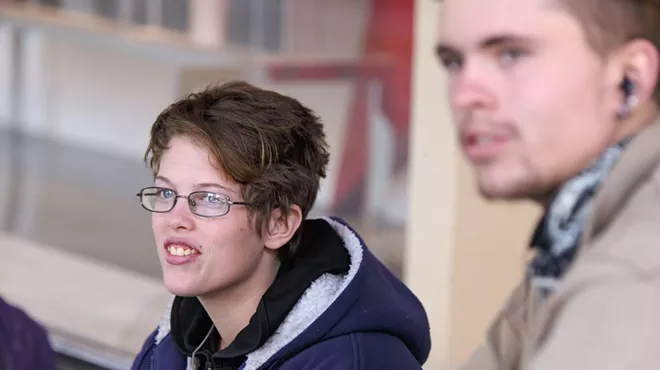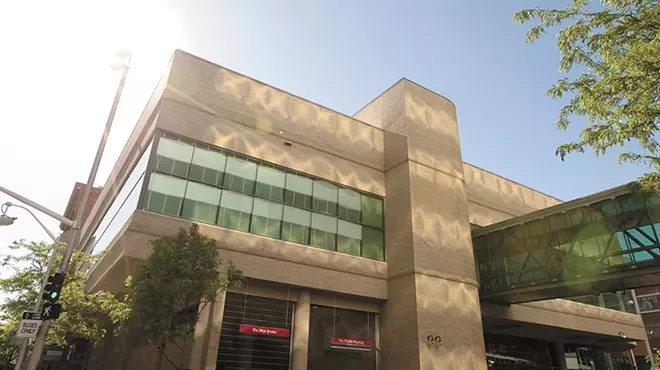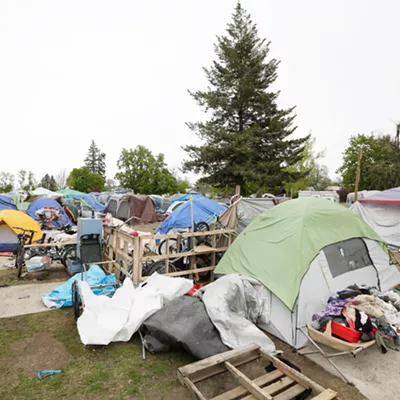
It's not true that only the pure of heart can hear the "mosquito" devices, the urban deterrence noisemakers that the Spokane City Council banned in a 4-3 vote on Monday evening.
But since the devices are specifically designed to target the youngest ears, it's telling that the only council member young enough to hear the devices — Councilwoman Kate Burke — was the council member who most fervently championed the ban.
"I can hear these devices. They actually physically make me sick to my stomach, if I stand in an area that has one of these," Burke said at Monday evening's videoconference council meeting. "I've heard from people who have kids that they don't want to come downtown because their kids can hear it."
In a way, downtown's mosquito devices are relics of a battle that businesses were waging long ago. This was before the fears over rioting, looting and armed vigilantes associated with this year's racial-justice protests, and before the spate of coronavirus-related shutdowns mandated by Gov. Jay Inslee's stay-home order.
But by 2014, after the STA spent $70,000 to build a new smoking area, businesses reported that the youth controversy had largely subsided.
Yet, businesses still turned to the mosquito devices as deterrence during the more recent fights over homelessness, vagrancy and drug use that defined last year's mayoral campaign.
"The problem that I heard complained about were not kids coming late at night sleeping in their doorways," Beggs says. "It was older people sleeping in doorways, leaving a mess, the police unable or unwilling to take care of it with the priorities they had. ... The misfortune of this conversation and debate is to conflate the two."
Burke's district seatmate, the conservative councilmember Michael Cathcart, said he couldn't hear the mosquito sound, but his fiancée can.
"She describes it as mildly irritating, but not harmful in any way," Cathcart said. "I know others have suggested otherwise."
But he also argued that businesses needed tools to operate unimpeded. Maybe after a new centralized police precinct is established downtown, it would make sense to ban them.
"If we get to a point where we had a stronger presence of community-engaged law enforcement officers, it could make sense where this could go away," Cathcart says.
Councilwoman Karen Stratton took a similar tack.
"I can't support this," Stratton said. "Right now, we are asking so much of our businesses. ... I can't ask businesses to find another way to keep people from causing damage."
Councilwoman Candace Mumm said there were harms either way. But think about the innocents, she said.
"They need to be protected. They're not even notified," Mumm said. "I feel for young parents who don't even know why their children are crying or fussy or having a problem. They just went in to have some ice cream, 'What's going on?'"
Noisemaking devices were not one of those devices law enforcement recommended to deter crime, Mumm said.
Betsy Wilkerson, who is the newest member of the council, pushed for a compromise. She said the council had discussed putting a sunset on the mosquito ban — and proposed amending the ordinance to force the council to reassess the ban at the end of 2021.
But Burke and other councilmembers opposed the amendment, and it failed to pass.
"I don't think we should ever have these devices in the community," Burke said. "I think they're harmful and discriminatory."
On Monday, Kinnear said she's been back and forth on the issue since then. Ultimately, for her, the issue came down to the fact that the businesses couldn't ensure that the sounds emitted would stay on their property and not impede the public streets and sidewalks.
"To section off a swath that's in front of your businesses, for people not to able to walk by unmolested essentially?" Kinnear says. "Just not good policy."























